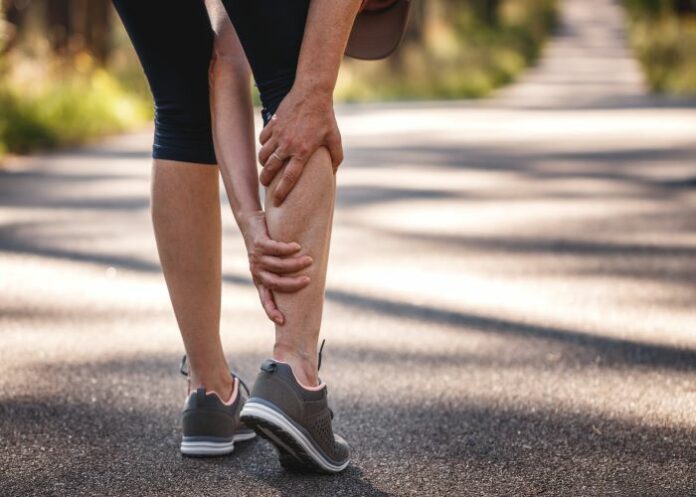Authors of a large study have reassured those taking cholesterol-lowering statins that it is uncommon for the tablets to cause muscle pain, and that the symptoms are more than likely related to other causes.
The conclusions are based on data from nearly 155 000 people, and the British Heart Foundation says patients should not automatically stop their tablets for mild muscle aches.
Statins can protect against heart attacks and strokes, but have had some negative publicity because of a very rare risk of dangerous muscle inflammation, reports BBC News.
In a number of statin trials assessing the treatment and possible side effects,
muscle pain or weakness was commonly reported by the participants, regardless of whether or not they were taking a statin tablet. Some of the volunteers received a placebo or dummy tablet instead of the statin, for comparison.
About one in four in both groups – statin or placebo – reported some muscle aches.
The researchers said during the first year of treatment, statin therapy produced a 7% relative increase in muscle pain or weakness compared to placebo, suggesting that only one in 15 of these muscle-related reports by patients given statins were because of the medication.
The absolute excess risk of muscle symptoms because of a statin was 11 per 1 000 patients treated during the first year, they said.
After the first year of treatment, there was no significant difference in reports of muscle pain or weakness between those given statins and those given the placebo.
Joint lead author Prof Colin Baigent said: “The idea that statins may cause frequent muscle pain has been a persistent belief among some patients and clinicians. However, our study confirms that the statin is rarely the cause of muscle pain in those taking statins.”
He said if a patient on statins does report muscle pain, then it should first be assumed that the symptoms are not because of the statin and are most likely down to other causes.
“Statin therapy should continue until other potential causes have been explored.”
He said it was still important to be on the lookout for the very rare cases of dangerous muscle damage that can occur as a side effect.
“Additionally, we believe there is a need to revise the information on the medication label for statins to clarify that most muscle pain experienced during statin therapy is not due to the statins.”
Prof Sir Nilesh Samani, from the British Heart Foundation, which funded the work, said the findings “should provide reassurance to the many people taking, or considering taking, these lifesaving drugs that have been proven to protect against heart attacks and strokes”.
Study details
Effect of statin therapy on muscle symptoms: an individual participant data meta-analysis of large-scale, randomised, double-blind trials
Cholesterol Treatment Trialists’ Collaboration
Published in The Lancet on 29 August 2022
Summary
Background
Statin therapy is effective for the prevention of atherosclerotic cardiovascular disease and is widely prescribed, but there are persisting concerns that statin therapy might frequently cause muscle pain or weakness. We aimed to address these through an individual participant data meta-analysis of all recorded adverse muscle events in large, long-term, randomised, double-blind trials of statin therapy.
Methods
Randomised trials of statin therapy were eligible if they aimed to recruit at least 1 000 participants with a scheduled treatment duration of at least two years, and involved a double-blind comparison of statin versus placebo or of a more intensive versus a less intensive statin regimen. We analysed individual participant data from 19 double-blind trials of statin versus placebo (n=123 940) and four double-blind trials of a more intensive versus a less intensive statin regimen (n=30 724). Standard inverse-variance-weighted meta-analyses of the effects on muscle outcomes were conducted according to a prespecified protocol.
Findings
Among 19 placebo-controlled trials (mean age 63 years [SD 8], with 34 533 [27·9%] women, 59 610 [48·1%] participants with previous vascular disease, and 22 925 [18·5%] participants with diabetes), during a weighted average median follow-up of 4·3 years, 16 835 (27·1%) allocated statin versus 16 446 (26·6%) allocated placebo reported muscle pain or weakness (rate ratio [RR] 1·03; 95% CI 1·01–1·06). During year one, statin therapy produced a 7% relative increase in muscle pain or weakness (1·07; 1·04–1·10), corresponding to an absolute excess rate of 11 (6–16) events per 1000 person-years, which indicates that only one in 15 ([1·07–1·00]/1·07) of these muscle-related reports by participants allocated to statin therapy were actually due to the statin. After year one, there was no significant excess in first reports of muscle pain or weakness (0·99; 0·96–1·02). For all years combined, more intensive statin regimens (ie, 40–80 mg atorvastatin or 20–40 mg rosuvastatin once per day) yielded a higher RR than less intensive or moderate-intensity regimens (1·08 [1·04–1·13] vs 1·03 [1·00–1·05]) compared with placebo, and a small excess was present (1·05 [0·99–1·12]) for more intensive regimens after year one. There was no clear evidence that the RR differed for different statins, or in different clinical circumstances. Statin therapy yielded a small, clinically insignificant increase in median creatine kinase values of approximately 0·02 times the upper limit of normal.
Interpretation
Statin therapy caused a small excess of mostly mild muscle pain. Most (>90%) of all reports of muscle symptoms by participants allocated statin therapy were not due to the statin. The small risks of muscle symptoms are much lower than the known cardiovascular benefits. There is a need to review the clinical management of muscle symptoms in patients taking a statin.
BBC News article – Statin pills rarely cause muscle pain or problems, study finds (Open access)
See more from MedicalBrief archives:
Statins found to have no effect on muscle pain in placebo trial
Continue statins despite adverse reactions – study
Statin side effects are the result of negative expectations

